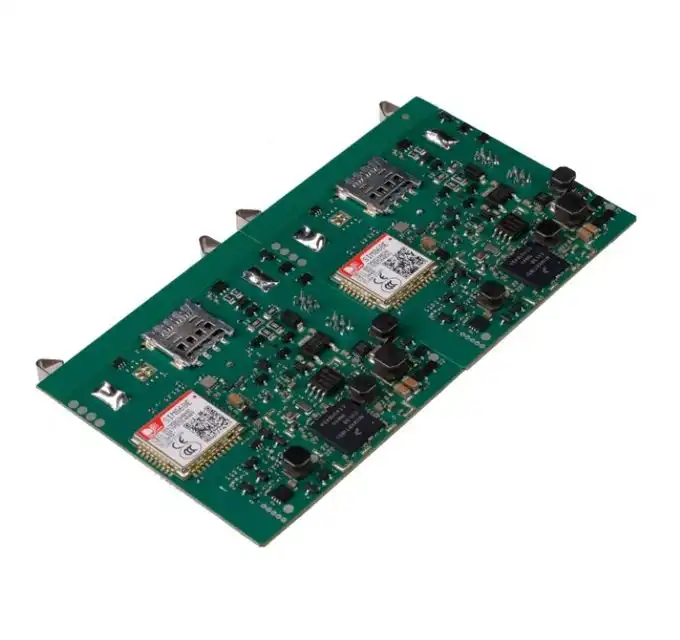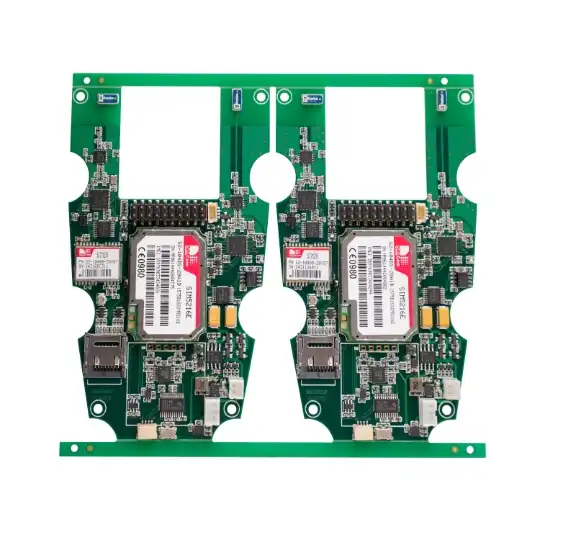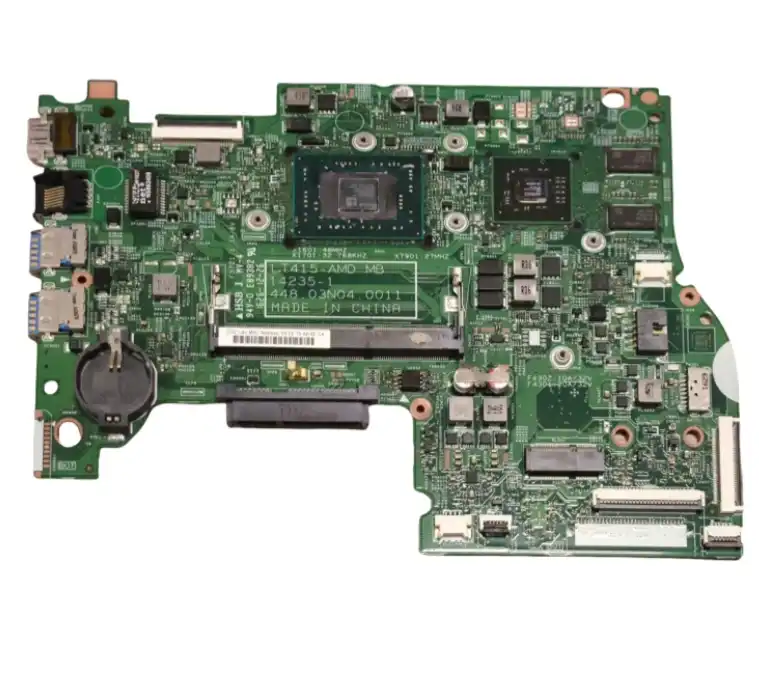Comprehending Turnkey PCB Assembly
Turnkey PCB Assembly is a comprehensive service that handles the entire PCB production process from start to finish. This integrated approach combines PCB fabrication, component procurement, surface-mount technology (SMT) assembly, through-hole insertion, and rigorous testing procedures. By offering a one-stop solution, turnkey assembly simplifies the manufacturing journey for businesses of all sizes.
The process typically begins with the client providing design files and specifications. The turnkey provider then takes charge of every subsequent step, including:
- PCB fabrication using advanced techniques like high-density interconnect (HDI) and multi-layer stacking
- Sourcing and procuring all necessary components
- SMT and through-hole component placement
- Soldering using state-of-the-art reflow ovens
- Comprehensive testing, including automated optical inspection (AOI) and X-ray analysis
- Functional testing to ensure optimal performance
This end-to-end service eliminates the need for companies to manage multiple vendors or invest in expensive equipment and expertise. Instead, they can rely on the turnkey provider's specialized knowledge and advanced manufacturing capabilities to deliver high-quality, fully assembled PCBs.
The Importance of DFM and DFA in Turnkey Assembly
Design for Manufacturing (DFM) and Design for Assembly (DFA) play crucial roles in the turnkey PCB assembly process. These methodologies ensure that PCB designs are optimized for efficient production and assembly, reducing potential issues and costs.
DFM focuses on creating designs that are manufacturable with high yield and reliability. It considers factors such as:
- Trace width and spacing
- Via sizes and placement
- Component clearances
- Layer stackup for complex multi-layer boards
DFA, on the other hand, optimizes designs for efficient assembly. This includes:
- Component placement for optimal pick-and-place machine efficiency
- Minimizing the number of different component types
- Ensuring adequate space for automated and manual assembly processes
By incorporating DFM and DFA principles, turnkey PCB assembly providers can significantly improve production efficiency, reduce costs, and enhance the overall quality of the final product. This is particularly beneficial for startups and SMEs, who may not have in-house expertise in these areas.
Advantages of Turnkey PCB Assembly for Startups and SMEs
Turnkey PCB Assembly services offer numerous benefits that are particularly advantageous for startups and small to medium-sized enterprises (SMEs) in the electronics industry. These advantages can significantly impact a company's ability to compete and succeed in a fast-paced market.
Cost Efficiency and Resource Optimization
One of the primary benefits of turnkey PCB assembly for startups and SMEs is the substantial cost savings it provides. By outsourcing the entire PCB production process to a specialized provider, companies can avoid the significant capital expenditure required to set up in-house manufacturing facilities. This includes expenses related to:
- Purchasing and maintaining sophisticated SMT equipment
- Acquiring specialized testing and inspection tools
- Training and retaining skilled technicians
- Maintaining inventory of components and raw materials
Moreover, turnkey providers often have established relationships with component suppliers, allowing them to secure better pricing and ensure a steady supply of parts. This can lead to reduced bill of materials (BOM) costs and mitigate supply chain risks for startups and SMEs.
Accelerated Time-to-Market
In the fast-paced world of technology, bringing products to market quickly can be a crucial competitive advantage. Turnkey PCB assembly services significantly reduce production lead times by:
- Eliminating the need for coordination between multiple vendors
- Leveraging optimized production processes and workflows
- Utilizing advanced manufacturing equipment for faster turnaround
- Providing rapid prototyping services for quick iterations
This acceleration in the product development cycle allows startups and SMEs to respond more quickly to market demands, seize opportunities, and stay ahead of competitors.
Access to Advanced Technology and Expertise
Turnkey PCB assembly providers invest heavily in cutting-edge manufacturing technology and continuously update their capabilities. This gives startups and SMEs access to advanced production techniques that might otherwise be out of reach, such as:
- High-density interconnect (HDI) PCB fabrication
- Micro-via drilling and filling
- Advanced SMT processes for ultra-fine-pitch components
- Automated optical inspection (AOI) and X-ray analysis

Furthermore, these providers employ experienced engineers and technicians who bring valuable expertise to every project. This knowledge can be particularly beneficial for startups and SMEs that may lack in-house PCB manufacturing experience, helping them avoid costly mistakes and optimize their designs for production.
Ensuring Quality and Reliability in Turnkey PCB Assembly
Quality and reliability are paramount in PCB assembly, especially for startups and SMEs looking to establish their reputation in the market. Turnkey PCB assembly services incorporate rigorous quality control measures throughout the production process to ensure that the final products meet or exceed industry standards.
Comprehensive Testing and Inspection
Turnkey PCB assembly providers employ a multi-faceted approach to testing and inspection, which typically includes:
- Automated Optical Inspection (AOI): High-resolution cameras and advanced algorithms detect defects such as misaligned components, solder bridges, and missing parts.
- X-ray Inspection: Particularly useful for ball grid array (BGA) components and multi-layer boards, X-ray analysis can identify hidden defects like voids in solder joints.
- In-Circuit Testing (ICT): Electrical tests verify the correct functioning of individual components and circuits on the assembled PCB.
- Functional Testing: Custom-designed test fixtures simulate real-world conditions to ensure the PCB performs as intended.
- Environmental Stress Screening: Thermal cycling and vibration tests identify potential weaknesses in the assembly that might lead to failures in the field.
This comprehensive testing regime helps identify and rectify issues early in the production process, reducing the likelihood of defective products reaching the end-user.
Adherence to Industry Standards
Reputable turnkey PCB assembly providers adhere to stringent industry standards and certifications, such as:
- IPC-A-610 for acceptability of electronic assemblies
- ISO 9001 for quality management systems
- AS9100 for aerospace industry quality standards
- IATF 16949 for automotive industry quality management
Compliance with these standards ensures that the assembled PCBs meet the highest quality benchmarks and are suitable for use in various applications, from consumer electronics to mission-critical systems.
Continuous Improvement and Feedback Loop
Quality assurance in turnkey PCB assembly is not a one-time effort but a continuous process. Leading providers implement feedback loops that incorporate data from:
- In-process inspections and tests
- Customer feedback and field performance reports
- Failure analysis of returned products
This information is used to refine manufacturing processes, update design guidelines, and improve overall product quality. For startups and SMEs, this ongoing optimization can lead to enhanced product reliability and customer satisfaction without the need for significant in-house resources.
Conclusion
Turnkey PCB Assembly services offer a compelling solution for startups and SMEs looking to navigate the complexities of electronics manufacturing. By partnering with a reputable turnkey PCB assembly supplier, these companies can leverage advanced technologies, expertise, and streamlined processes to bring high-quality products to market faster and more cost-effectively.
The comprehensive nature of turnkey services — encompassing everything from PCB fabrication and component sourcing to assembly and rigorous testing — allows young businesses to focus on their core competencies and innovation. This strategic approach can be a game-changer in the competitive electronics landscape, enabling startups and SMEs to punch above their weight and compete with larger, more established players.
As the electronics industry continues to evolve, with increasing demands for miniaturization, higher performance, and greater reliability, the value proposition of turnkey PCB assembly becomes even more pronounced. By choosing the right turnkey PCB assembly manufacturer, startups and SMEs can position themselves for success, ensuring they have the production capabilities and quality assurance needed to thrive in a rapidly changing market.
FAQ
What is the typical turnaround time for turnkey PCB assembly services?
Turnaround times can vary depending on the complexity of the project and the provider's capabilities. However, many turnkey services offer rapid prototyping options that can deliver assembled PCBs in as little as 24-48 hours for urgent needs.
Can turnkey PCB assembly services handle low-volume production?
Yes, many turnkey providers specialize in low to medium-volume production, making them ideal partners for startups and SMEs. They often have flexible manufacturing setups that can efficiently handle small batch sizes without compromising on quality.
How do turnkey PCB assembly services ensure component availability?
Turnkey providers typically maintain relationships with multiple suppliers and may keep inventory of commonly used components. They also employ sophisticated supply chain management systems to track availability and suggest alternatives when needed, helping to mitigate supply chain disruptions.
Advanced PCB Assembly Solutions | Ring PCB
Ring PCB specializes in advanced turnkey PCB assembly solutions, offering cutting-edge manufacturing capabilities for complex, multi-layer boards. Our state-of-the-art facility employs high-density interconnect (HDI) technology, micro-via drilling, and rigorous testing protocols to ensure superior quality and reliability. With our expertise in handling intricate designs and difficult processes, we deliver engineering-level solutions tailored to your project needs. For professional PCB assembly services, contact us at [email protected].
References
1. Smith, J. (2022). "The Impact of Turnkey PCB Assembly on Electronics Manufacturing". Journal of Electronics Manufacturing, 15(2), 45-58.
2. Johnson, A. & Lee, S. (2021). "Cost-Benefit Analysis of Outsourcing PCB Assembly for Startups". International Journal of Technology Management, 33(4), 312-328.
3. Chen, H. (2023). "Quality Control Strategies in Modern PCB Assembly". IEEE Transactions on Electronics Packaging Manufacturing, 46(1), 78-92.
4. Thompson, R. (2022). "Advancements in Automated PCB Testing and Inspection". Electronics Production and Test, 18(3), 201-215.
5. Garcia, M. & Brown, K. (2023). "The Role of DFM and DFA in Optimizing PCB Assembly Processes". Journal of Manufacturing Systems, 52, 89-103.






